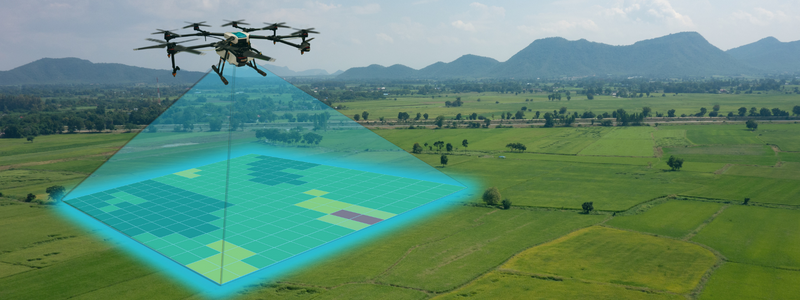
While “interference” generally describes unintentional forms of disruption during wireless communications, “jamming” describes the deliberate interference with or blocking of such communications.
As the name suggests, jamming antennas, (aka jammers) are specifically used to interfere with radio noise or signals. In electronic warfare (EW) these interference are meant to disrupt control of a battle.
For example, jammers radiate interfering signals toward an opponent’s radar, blocking the receiver with highly concentrated energy signals.
The two main jamming techniques are noise techniques and repeater techniques. Spot jamming, sweep jamming, and barrage jamming are the three most common types of noise jamming, whereas DRFM jamming is the most common type of repeater jamming.
Spot jamming is a form of noise jamming, where a jammer focuses all of its power on a single frequency, rendering the technique ineffective against a frequency-agile radar.
Sweep jamming is the process of shifting a jammer’s full power from one frequency to another. This “sweeping” motion jams multiple frequencies in quick succession, although not all at the same time.
Barrage jamming is the jamming of multiple frequencies at once by a single jammer. The main drawback of this technique is that the jammer spreads it’s power across multiple frequencies, making it comparatively less powerful at a single frequency.
Digital frequency radio memory, or DRFM, is a repeater technique that confuses a radar by altering and re-transmitting received radar energy. For example, by changing the delay in transmission of pulses, the jammer can alter the range the radar detects and creating false targets. Many jamming antennas use these types of techniques.
At present, there are several countermeasures against jamming. Similar to jamming techniques, these countermeasures allow for varying levels of effectiveness. Additionally, specifically designed, anti-jam antennas have become available. As new RF technologies emerge, so do developments in electronic warfare.
Latest Posts

Part I: Taking Measurements With Drones
UAVs, also nicknamed, “drones,” are exceptional at capturing a bird’s-eye view. This is one of the reasons why they’re popular for measuring.

Part II: Signal Monitoring Techniques
Signal monitoring techniques are methods used to observe, analyze, and interpret various types of signals, such as electronic, electromagnetic, or digital signals.
